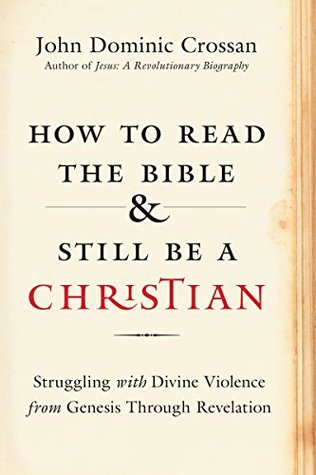More on this book
Community
Kindle Notes & Highlights
Read between
July 15 - December 9, 2018
I should also admit that I never found those divergent viewpoints either confusing or alarming because of one fundamental conviction I have had for a long time: that reason and revelation or history and theology or research and faith—by whatever names—cannot contradict one another unless we have one or both wrong.
the heartbeat of the Christian Bible is a recurrent cardiac cycle in which the asserted radicality of God’s nonviolent distributive justice is subverted by the normalcy of civilization’s violent retributive justice.
The norm and criterion of the Christian Bible is the biblical Christ but the norm and criterion of the biblical Christ is the historical Jesus.
Israel knew, as did the entire Fertile Crescent, that the Epic of Gilgamesh and Enkidu was not a tragic tale of “if only” Gilgamesh had not taken that cool swim, he would have been immortal. They also knew that Genesis 2–3 was not a tragic tale of “if only” Adam had not taken that first bite, humanity would have been immortal. Both these stories were metaphorical warnings against transcendental delusions of human immortality. They were parables proclaiming that death is our common human destiny.
Our humanity, Genesis concludes, is not distinguished by being immortal, for that is an impossibility, but by being moral—and that is a responsibility.
GENESIS 4 IS NOT simply about an original fratricide. It is about escalatory violence almost as a seductive inevitability. But, of course, it is also about a God who asserted that it was not inevitable and proclaimed that it could be overcome: “You will rule over it.” In other words, the normalcy of human civilization is not the inevitability of human nature.
From all of this, I take these four conclusions about “original sin” in the Bible. First, according to the explicit text of the Bible, “sin” occurred originally not in the divine garden of Genesis 2–3 but in the human field of Genesis 4. Second, “sin” in Genesis 4 is not a flaw in creation but in civilization, a fault not in nature but in culture. Third, original sin is not about individuals and sex but about communities and violence. It is about humanity’s penchant for escalatory violence as its drug of choice. Fourth, sin is not inescapable or irresistible: “you will rule over it,” says God
...more
God’s first gift to humanity of God’s own image and likeness is precisely what constitutes God as a God of distributive justice. What greater and more gracious act of divine justice is there than to distribute to all the human race an internal identity and destiny as God’s own image and likeness?
It was not rest for worship of God, but rest as worship of God.
I emphasize that in the biblical tradition nonviolent distributive justice is not a command by God but is the character of God.
murder, as in Genesis 4, is explicitly mentioned but in words I deliberately repeat: “Whoever sheds the blood of a human, / by a human shall that person’s blood be shed” (9:6). It is as if, in those lines of reversed poetic parallelism, God declines to establish divine punishment for human murder. Instead, God simply allows human consequence rather than asserting divine sanction.
Covenant in the biblical tradition is, therefore, a religio-political, religio-social, and religio-economic commitment between God and the world as macrocosm or God and Israel as an experimental microcosm.


